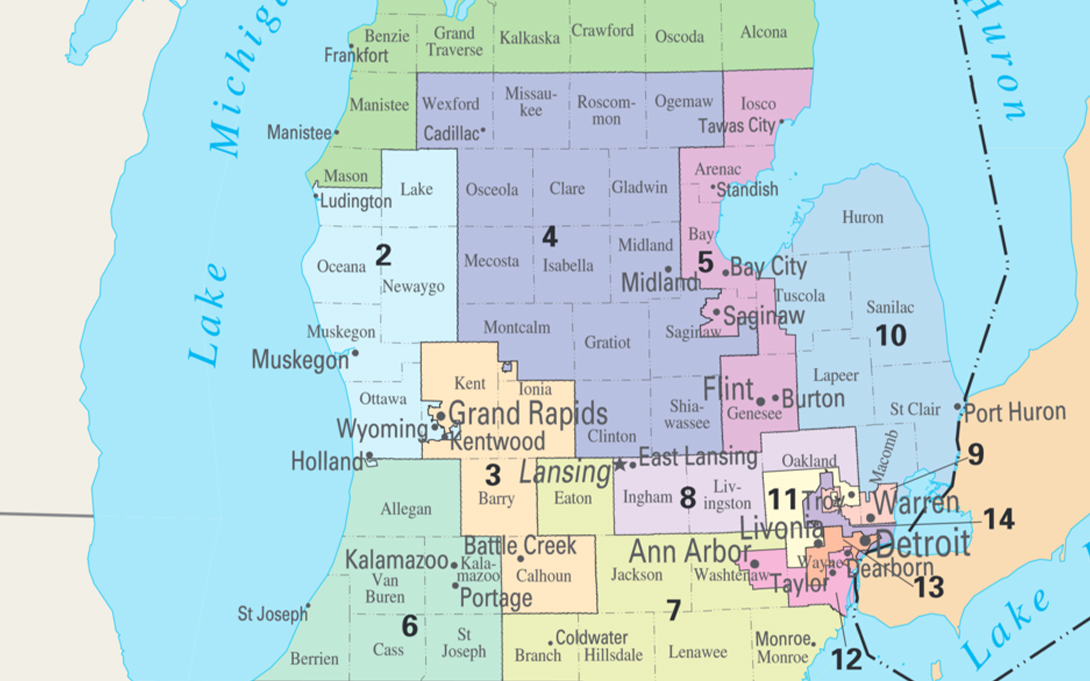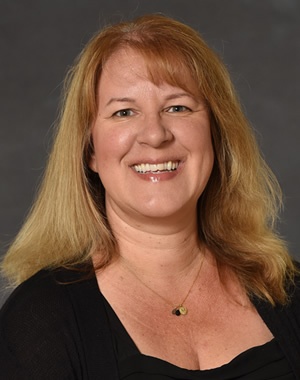
Local officials in Michigan have rendered a mixed verdict on the state's new constitutionally mandated approach to redrawing electoral maps with the goal of reducing gerrymandering and promoting fairer elections.
Only 24% of local officials are satisfied with the work of the Michigan Independent Citizens Redistricting Commission, created by a voter-approved 2018 state constitutional amendment to take redistricting out of the hands of the Legislature. The 2022 elections will be the first in which districts drawn by the commission will be contested. Another 22% of local leaders are dissatisfied, a third (33%) are neutral and 20% aren’t sure how they feel about the new approach.
These are among the primary findings of the Michigan Public Policy Survey conducted by the Center for Local, State, and Urban Policy (CLOSUP) this past spring—just after the final maps had been approved.
While they are largely aware of the work to redraw the state's electoral maps (81%), local government leaders who have paid attention to the commission are more likely to be critical than complementary of its performance on various elements. For instance, 28% rate the transparency of the commission's work as "good" or "excellent," compared with 43% who say it is just "fair" or "poor."
The ratings are similar across a range of assessments, including public engagement opportunities, valuing public input, ensuring no unfair advantage for political parties or particular candidates, and drawing districts that protect "communities of interest," reflect local government boundaries, are compact, and follow the Voting Rights Act protections for minority voters.
Satisfaction among local leaders with the final maps adopted by the commission is also mixed for the congressional maps (22% satisfied vs. 21% dissatisfied), Michigan's state Senate maps (21% satisfied vs. 23% dissatisfied), and state House maps (22% satisfied vs. 25% dissatisfied). Again, about a third of respondents are neutral regarding the final maps and another fifth responded "don’t know."
A disparity exists between the opinions of local government leaders and the general population in Michigan about the state’s new approach to redistricting. After the redistricting process was complete and new maps had been adopted, those local leaders saying the commission is a better approach to redistricting declined to 39%, although just 19% believe it is a worse approach than having the legislature handle redistricting. In contrast, among those Michigan residents familiar with the commission, 53% believe it is a better approach than having the legislature redraw the maps.
Local leaders gave assessments of how the change was affecting their work. One agreed with the goals and process but wished the commission could have done more to keep counties and small communities in the same district to reduce complexity of elections. Another expressed satisfaction with the commission's efforts, which the leader noted was an improvement over the district lines drawn by either party that controlled the Legislature.
"The establishment of the commission was intended to be a major shift to attempt to take partisan politics out of the drawing of election lines ," said Debra Horner, the survey's program manager. "There were hiccups in the process, but the final assessment will be how representative of the voters the new legislative and congressional delegations turn out to be."
Tom Ivacko, CLOSUP's executive director, said the fact that so many local officials have observed the process and are familiar with it is nearly as important as their attitudes about it.
"The ambivalent or even negative views of local leaders may not be surprising, since the new constitutional language places protection of local government boundaries near the bottom of the priority list in drawing new maps. Nonetheless, their input will help the next iteration of the MICRC as it redraws the maps again after the 2030 Census," he said. "The lessons from Michigan will certainly reverberate in other parts of the country where discussions of gerrymandering have been taking place."
After the election on Nov. 8, CLOSUP will host an event on Nov. 30 to review how this new approach played out this fall, including its impacts on races and election outcomes, and how it compares to experiences in other states.
"Approved, and now voted on—what we’ve learned after the first election under Michigan's new Redistricting Process," will feature Matt Grossmann, director of the Institute for Public Policy and Social Research of Political Science at Michigan State University, and panelists Moon Duchin of the Tufts University MGMG Redistricting Lab, Zach Gorchow, executive editor and publisher of Gongwer News Service, and Nancy Wang, executive director of Voters Not Politicians, the grassroots group that lead the effort to change Michigan’s approach to redistricting.
The Michigan Public Policy Survey represents 1,856 general purpose local governments in Michigan conducted by CLOSUP since 2009. Respondents include city, township, village and county officials. The survey is conducted with the Michigan Association of Counties, Michigan Municipal League and Michigan Townships Association.
